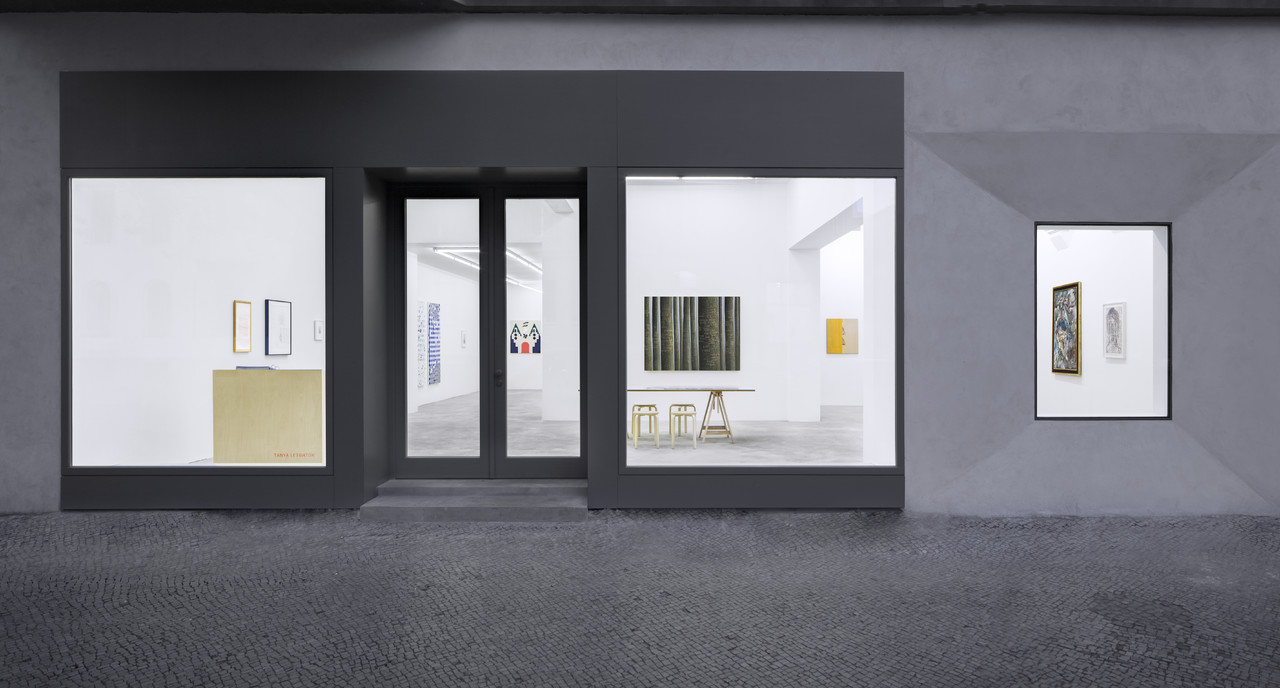Tamo Jugeli
A Clear Horizon
9 October – 9 November 2024, Kurfürstenstraße 24/25
Tanya Leighton, Berlin is pleased to announce ‘A Clear Horizon’, an exhibition by Georgian painter Tamo Jugeli. On view in the gallery is a series of new paintings that exemplify the artist’s instinctual, abstract style for which she has quickly gained recognition – an unpolished yet mature voice that she honed by shirking traditional art school, opting instead for a mentorship under acclaimed Georgian artist Gia Edzgveradze. Indeed, Jugeli, who began her career as a journalist, came to painting through an unorthodox and self-taught path. It was not until fate had dealt the artist a severe emotional “low point” in early adulthood that she turned to painting, first therapeutically and then as a calling.
Today, now based in Brooklyn, Jugeli’s work recalls the emotional immediacy and physical action of post-war expressive and lyrical abstraction, artistic currents that are typified by an investment in antirealism, intuition, visually engrossing energy and a general hostility toward academicism. The rich and dirty ochres, yellows, teals and vivid greens of her palette are dotted with blacks so solid that they suggest the mouth of a cave. Like her post-war antecedents, the canvas for Jugeli is less a luminous window and more a dark passage to another kind of representational realm (a space whose meditative atmosphere inexorably leads to an existential mood). On the subject of caves, Jugeli’s allegory, it might be said, could be calling us back to the caverns – the original spaces where humans sought the truth of the outside world by capturing it in pigment along the walls of its inside. The fact that the artist’s paintings conjure thoughts on realism/ antirealism, window/passage, light/dark, exteriority/interiority, and so on illuminates – pun intended – the title of her exhibition.
As Jugeli explains, the show’s title quotes the legendary director Alfred Hitchcock, specifically an answer he gave in an interview with the host of Telescope, a Canadian television series, in 1964. Following a lengthy discussion of the director’s childhood, rise in the film industry, and cinematic legacy, the host abruptly ends the interview with the following question: “Mr. Hitchcock, what is your definition of happiness?” After glancing away in thought, the director replies, “a clear horizon.” Hitchcock goes on to share that he cannot bear holding on to negative feelings that arise from quarrelling between those around him, which he says stifles his creative impulse. He further remarks that he’s so sensitive that “A sharp word, said by say a person who has a temper – if they’re close to me–hurts me for days.” Hitchcock, here, is speaking to something quite universal, namely the pessimism that paralyses the spirit when life’s trivial conflicts or worries extinguish one’s creative drive.
‘A Clear Horizon’ is in its simplest sense about the things that make life worth living. It is not by chance that the Georgian came to painting at a “low point” in her life nor is it surprising that her approach to it so closely resembles a generation of artists who turned to art as a refuge from a pervasive climate of dread ushered in by the memory of war. Jugeli is not merely a stylistic successor, her work is animated by the same Apollonian and Dionysian forces that held great purchase over the imaginations of her spiritual kin. The work is a refusal to be paralysed by negativity. To those who find the above sentiment quaint, I leave you with an aphorism by one of the most extreme philosophical pessimists to have lived. It is a dark quip which might as well have been written about painting: “A book is a postponed suicide.”
